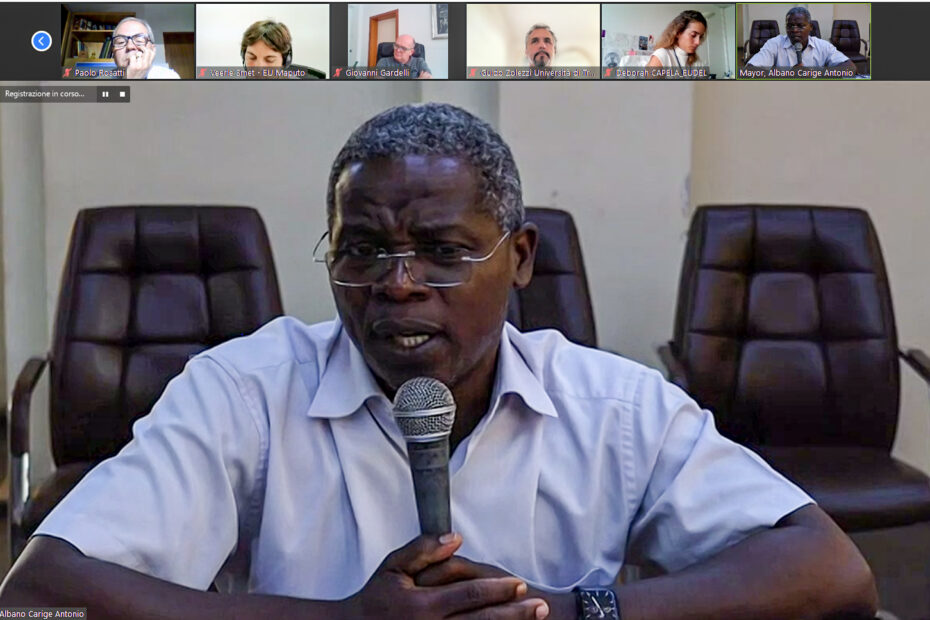It derives from the word ‘to steer’, which refers to the steering mechanism of a vehicle, the name of the steering body – ‘Steering Committee’ – of a complex organisation which periodically meets to give direction to the organisation itself.
In the case of the MUDAR, the Steering Committee is formed by the project Partners with decision-making power. It met on Tuesday, 30 May, to brief the stakeholders on the progress of the work and the strategies for the best continuation of the European project.
For the first time, the heads of all MUDAR Partners met, with the Autonomous Province of Trento (PAT) as lead partner, the Conselho Municipal da Beira, the University of Trento, the Universidade Zambeze and the Instituto de Formação em Administração Pública e Autárquica da Beira (IFAPA). PAT’s affiliated body, Centro per la Cooperazione Internazionale, and implementing body, Consorzio Associazioni con il Mozambico, also attended the meeting. Since the project was financed by the European Union through the call for proposals dedicated to ‘Local Authorities’, the European Union Delegation in Maputo also attended the meeting.
During the committee, partners went through the activities carried out in the first year of the project and the planning of the second year. Moreover the activity plan for the second year, recently ‘launched’ by the ‘Technical Board’, was also approved-
As emphasised by all representatives, the Steering Committee constituted an important opportunity for discussion. In the words of PAT’s Councillor for Local Authorities with responsibility for International Development Cooperation, Mattia Gottardi, Partners play the role of co-leaders in development. In particular, the Autonomous Province of Trento interfaces with the Conselho Municipal da Beira, to jointly identify the objectives, tools and methodologies to pursue the best common development.
The Mayor of Beira Albano Antonio Carige, together with Councillor Manuel Joaquim (Vereador de Gestão Urbana e Equipamentos), assisted by the CCI and IFAPA together with the Universities of Trento and Universidade Zambeze, reaffirmed how capacity building, made up of training and communities of practice, is proving to be an effective tool for growth, under the banner of reciprocity and sustainability. This is in line with the spirit envisaged by the European Commission.



